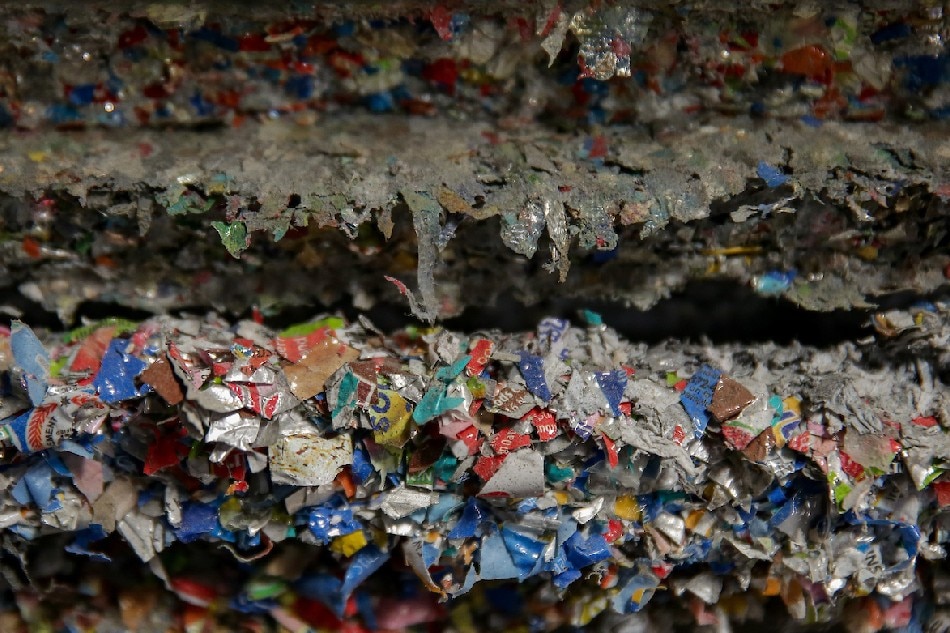Sri Lanka bans single-use plastics to save elephants | ABS-CBN
ADVERTISEMENT

Welcome, Kapamilya! We use cookies to improve your browsing experience. Continuing to use this site means you agree to our use of cookies. Tell me more!
Sri Lanka bans single-use plastics to save elephants
Sri Lanka bans single-use plastics to save elephants
Agence France-Presse
Published Feb 16, 2023 08:11 AM PHT
COLOMBO - Sri Lanka will ban single-use plastics, the government said Tuesday, in a move that follows a series of wild elephant and deer deaths from plastic poisoning.
COLOMBO - Sri Lanka will ban single-use plastics, the government said Tuesday, in a move that follows a series of wild elephant and deer deaths from plastic poisoning.
Cabinet spokesman and media minister Bandula Gunawardana said the manufacture or sale of plastic cutlery, cocktail shakers and artificial flowers will be prohibited from June.
Cabinet spokesman and media minister Bandula Gunawardana said the manufacture or sale of plastic cutlery, cocktail shakers and artificial flowers will be prohibited from June.
The move was recommended by a panel appointed 18 months ago to study the impact of plastic waste on the environment and wildlife.
The move was recommended by a panel appointed 18 months ago to study the impact of plastic waste on the environment and wildlife.
Non-biodegradable plastic bags were banned in 2017 due to concerns over flash floods.
Non-biodegradable plastic bags were banned in 2017 due to concerns over flash floods.
ADVERTISEMENT
And imports of plastic cutlery, food wrappers and toys were banned two years ago after a spate of deaths of elephants and deer in the island's northeast after foraging at open garbage tips.
And imports of plastic cutlery, food wrappers and toys were banned two years ago after a spate of deaths of elephants and deer in the island's northeast after foraging at open garbage tips.
Autopsies showed the animals had died after eating plastics mixed with food waste.
Autopsies showed the animals had died after eating plastics mixed with food waste.
But local manufacture and sale of plastic products continued.
But local manufacture and sale of plastic products continued.
Sri Lanka's top authority on Asian elephants, Jayantha Jayewardene, welcomed the move to stop them, but told AFP the ban should be extended to biodegradable plastic bags.
Sri Lanka's top authority on Asian elephants, Jayantha Jayewardene, welcomed the move to stop them, but told AFP the ban should be extended to biodegradable plastic bags.
"These bags are getting into the food chain of elephants and wildlife and that is not a good thing," he said.
"These bags are getting into the food chain of elephants and wildlife and that is not a good thing," he said.
ADVERTISEMENT
Elephants are considered sacred and protected by law in Sri Lanka, but about 400 die a year as a result of human-elephant conflict near wildlife reserves, as do around 50 people.
Elephants are considered sacred and protected by law in Sri Lanka, but about 400 die a year as a result of human-elephant conflict near wildlife reserves, as do around 50 people.
Shrinking habitat has led to jumbos raiding villages looking for food and many suffer agonising deaths after foraging for food at dumps filled with plastic waste.
Shrinking habitat has led to jumbos raiding villages looking for food and many suffer agonising deaths after foraging for food at dumps filled with plastic waste.
Dozens of wild deer died from plastic poisoning in the northeastern district of Trincomalee about five years ago, prompting the government to ban the open dumping of garbage near jungle reserves.
Dozens of wild deer died from plastic poisoning in the northeastern district of Trincomalee about five years ago, prompting the government to ban the open dumping of garbage near jungle reserves.
aj/slb/dhw/dva
aj/slb/dhw/dva
© Agence France-Presse
ADVERTISEMENT
ADVERTISEMENT



